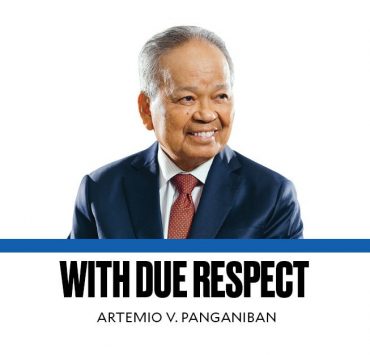The power of one’s vote

Beyond the political showdowns happening nationwide, the story of today’s midterm election, much like the 2022 presidential polls, is shaping up to be another battle of disinformation.
Unless voters are discerning in their choice of leaders, victory will go to the candidates in command of well-funded troll armies that can shape and distort public opinion, rather than those with the best platforms and principles, let alone the heart to serve. So insidious is this new virus that some quarters rightly consider disinformation as the single biggest danger facing the electorate, one worse tenfold than the “guns, goons, and gold” of elections past.
The fact is, “fake news” is better at propagating itself than the real thing. Unlike headlines, it doesn’t scream or shout, or it doesn’t need to: It spreads in whispers, on Facebook chats, Viber groups and TikTok threads, dressed up as official-looking advisories or shared by anonymous accounts parroting identical scripts.
Sadly, the strategy is working all too well on social media-addicted Filipinos, sowing doubt, confusion and apathy everywhere.
‘No national ID, no vote’ hoax
It is no coincidence that patently false claims, such as the now-debunked “no national ID, no vote” hoax, have gone viral in the final stretch of the campaign. Designed to deter voters from showing up at the polls, the lie became so widespread that the Commission on Elections (Comelec) was forced to issue an official denial, clarifying that no ID is required to vote, provided one’s name appears on the computerized voters’ list.
As Comelec Chair George Garcia advised voters, one may bring any valid ID as a precaution, not as a requirement.
But this is only one example of a larger problem. From fabricated advisories claiming elections were moved to May 10, to synchronized posts alleging rigged vote-counting machines, disinformation operations are in full swing.
Last week, Garcia raised an alarm over what he called a “massive and coordinated” campaign to undermine the credibility of the elections, even as he assured the public that Comelec’s systems remained secure and tamper-proof.
But the real breach may already be happening in voters’ minds.
“We expect that misinformation and disinformation campaigns, and even fake news will proliferate even further as election days draw closer. There are really unscrupulous people and groups whose goal is to erode the credibility of our elections. They are trying to sow doubts in the minds of the Filipino people,” Garcia said.
Voter suppression by fear
The poll chief warned the public to be wary of manipulation: “Expect that in the coming days, we will be mind conditioned … Troll farms are being used on us and the information [spread by] autobots is also being used on us.”
Comelec has reported seeing suspicious patterns: a false post about electoral fraud reaches 700,000 views and 32,000 comments in under 30 minutes, all using the same words and phrases. These aren’t ordinary users sharing opinions but automated accounts, or autobots, and organized troll farms seeded to manipulate public sentiment.
And it doesn’t stop at election logistics. According to the International Coalition for Human Rights in the Philippines (ICHRP), Red-tagging remains the top election violation, comprising nearly 79 percent of reported abuses this season. Despite clear legal prohibitions and Supreme Court precedent declaring Red-tagging a threat to life and liberty, progressive candidates continue to be labeled as sympathizers of terrorist groups, often without evidence.
It appears that the motivation isn’t simple character assassination but voter suppression by fear, intended to silence dissent and steer votes away from reformist platforms. As ICHRP noted, Red-tagging “silences those discussions by trying to discredit, through misinformation and harassment, solutions promulgated by candidates that run counter to business as usual and dynastic politics.”
Not for popularity or propaganda
But voters are not powerless against these manipulation tactics.
There is a wealth of information on candidates and their platforms in both online and traditional media, for the public to make intelligent choices in today’s democratic exercise. But such information is only useful if it is truthful, and it will only make a difference if its audience shuns lies in favor of the truth.
So, each of the 68.4 million registered Filipino voters here, and 1.2 million overseas, carries not just a ballot but the responsibility to vote wisely and courageously. Choose leaders not for their popularity or propaganda, but for their track record and proven ability to address the nation’s problems: poverty, corruption and a dysfunctional educational system.
Good governance starts at the ballot, and in the war of narratives, we mustn’t fall victim to keyboard warriors. Instead, be the counterforce: Cast your vote for leaders with the cleanest and clearest vision for a better Philippines.





















